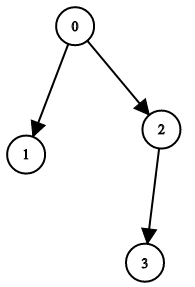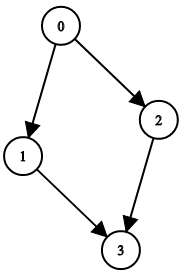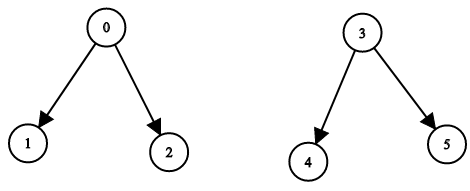Validate Binary Tree Nodes
Problem is here: https://leetcode.com/problems/validate-binary-tree-nodes/




Approach:
1. Detect whether there is only one potential root. This can be done in O(n). If there isn't, return false
2. Given (1), do a DFS ensuring that we can cover all nodes only once. This can be done in O(n).
Code is below, cheers, ACC.
public class Solution
{
public bool ValidateBinaryTreeNodes(int n, int[] leftChild, int[] rightChild)
{
//Check whether there is a single root
int[] rootCandidates = new int[n];
for (int i = 0; i < leftChild.Length; i++)
{
if (leftChild[i] >= 0 && leftChild[i] < n)
{
rootCandidates[leftChild[i]] = 1;
}
if (rightChild[i] >= 0 && rightChild[i] < n)
{
rootCandidates[rightChild[i]] = 1;
}
}
int potentialRoot = -1;
for (int i = 0; i < n; i++)
{
if (rootCandidates[i] == 0)
{
if (potentialRoot != -1) return false;
potentialRoot = i;
}
}
if (potentialRoot == -1) return false;
//Check
Hashtable visited = new Hashtable();
if (!CheckBinaryTree(potentialRoot, leftChild, rightChild, visited)) return false;
if (visited.Count != n) return false;
return true;
}
private bool CheckBinaryTree(int nodeIndex,
int[] leftChild,
int[] rightChild,
Hashtable visited)
{
if (nodeIndex == -1) return true;
if (visited.ContainsKey(nodeIndex)) return false;
visited.Add(nodeIndex, true);
return CheckBinaryTree(leftChild[nodeIndex], leftChild, rightChild, visited) && CheckBinaryTree(rightChild[nodeIndex], leftChild, rightChild, visited);
}
}
1361. Validate Binary Tree Nodes
Medium
You have
n binary tree nodes numbered from 0 to n - 1 where node i has two children leftChild[i] and rightChild[i], return true if and only if all the given nodes form exactly one valid binary tree.
If node
i has no left child then leftChild[i] will equal -1, similarly for the right child.
Note that the nodes have no values and that we only use the node numbers in this problem.
Example 1:

Input: n = 4, leftChild = [1,-1,3,-1], rightChild = [2,-1,-1,-1] Output: true
Example 2:

Input: n = 4, leftChild = [1,-1,3,-1], rightChild = [2,3,-1,-1] Output: false
Example 3:

Input: n = 2, leftChild = [1,0], rightChild = [-1,-1] Output: false
Example 4:

Input: n = 6, leftChild = [1,-1,-1,4,-1,-1], rightChild = [2,-1,-1,5,-1,-1] Output: false
Constraints:
1 <= n <= 10^4leftChild.length == rightChild.length == n-1 <= leftChild[i], rightChild[i] <= n - 1
Approach:
1. Detect whether there is only one potential root. This can be done in O(n). If there isn't, return false
2. Given (1), do a DFS ensuring that we can cover all nodes only once. This can be done in O(n).
Code is below, cheers, ACC.
public class Solution
{
public bool ValidateBinaryTreeNodes(int n, int[] leftChild, int[] rightChild)
{
//Check whether there is a single root
int[] rootCandidates = new int[n];
for (int i = 0; i < leftChild.Length; i++)
{
if (leftChild[i] >= 0 && leftChild[i] < n)
{
rootCandidates[leftChild[i]] = 1;
}
if (rightChild[i] >= 0 && rightChild[i] < n)
{
rootCandidates[rightChild[i]] = 1;
}
}
int potentialRoot = -1;
for (int i = 0; i < n; i++)
{
if (rootCandidates[i] == 0)
{
if (potentialRoot != -1) return false;
potentialRoot = i;
}
}
if (potentialRoot == -1) return false;
//Check
Hashtable visited = new Hashtable();
if (!CheckBinaryTree(potentialRoot, leftChild, rightChild, visited)) return false;
if (visited.Count != n) return false;
return true;
}
private bool CheckBinaryTree(int nodeIndex,
int[] leftChild,
int[] rightChild,
Hashtable visited)
{
if (nodeIndex == -1) return true;
if (visited.ContainsKey(nodeIndex)) return false;
visited.Add(nodeIndex, true);
return CheckBinaryTree(leftChild[nodeIndex], leftChild, rightChild, visited) && CheckBinaryTree(rightChild[nodeIndex], leftChild, rightChild, visited);
}
}



Comments
Post a Comment